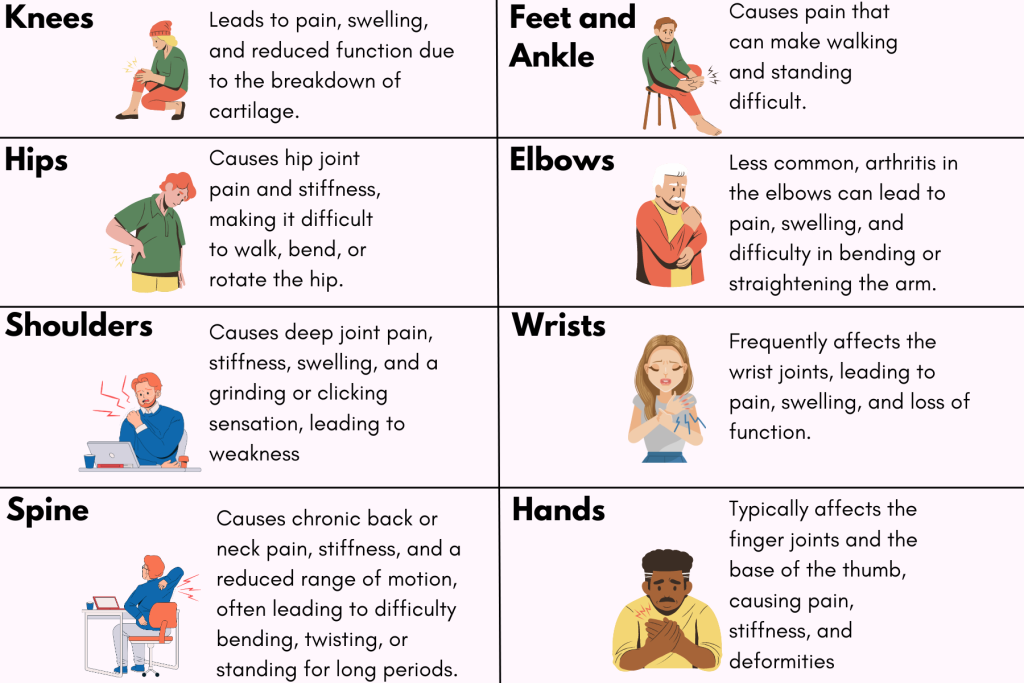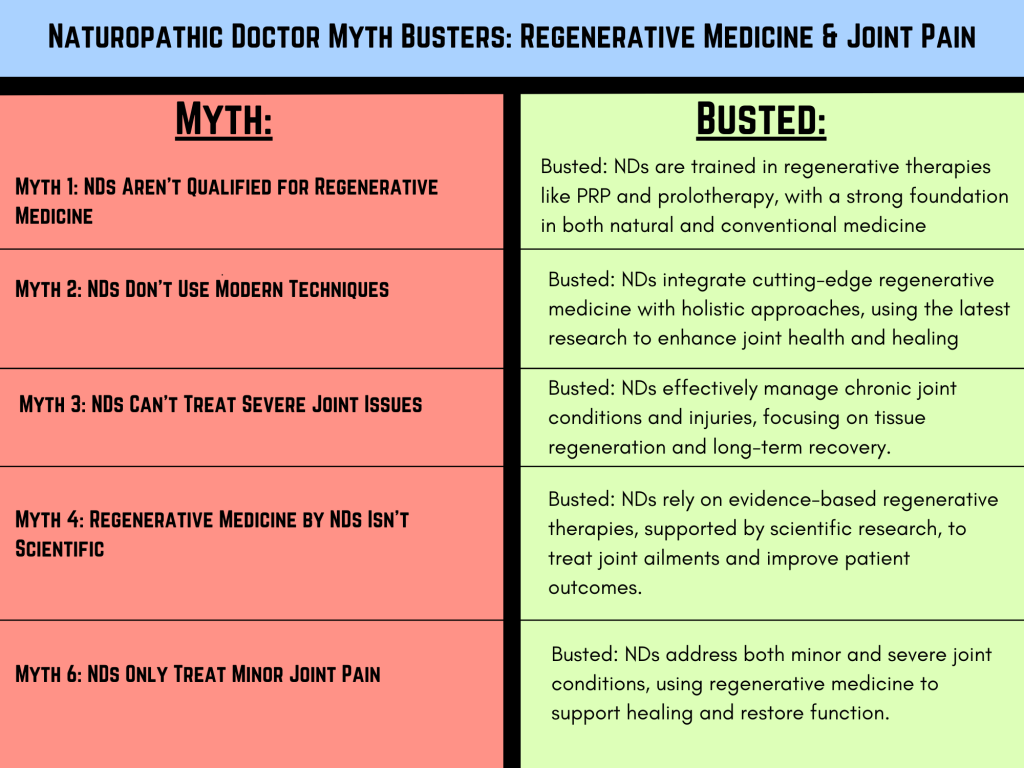Arthritis is a common yet debilitating condition that affects millions of people worldwide, significantly impacting their quality of life. Traditional treatments often focus on managing symptoms rather than addressing the underlying causes. However, advancements in regenerative medicine offer promising new avenues for treatment that could potentially revolutionize the way we approach arthritis care.
Understanding Arthritis
Arthritis encompasses over 100 different types of joint diseases and conditions, the most common being osteoarthritis and rheumatoid arthritis. Osteoarthritis is characterized by the degeneration of cartilage, leading to pain, stiffness, and reduced mobility. Rheumatoid arthritis, an autoimmune disorder, causes chronic inflammation in the joints, resulting in pain and swelling. Traditional treatment methods, such as medications, physical therapy, and surgery, often provide only temporary relief and may come with significant side effects.
Osteoarthritis:
- Degenerative Joint Disease: OA is primarily a degenerative joint disease caused by wear and tear of the cartilage that cushions the ends of the bones in the joints. As the cartilage deteriorates, bones may rub against each other, causing pain and stiffness.
- Age and Mechanical Factors: OA is more common in older adults and is associated with age-related changes, joint injuries, repetitive stress, and obesity, which can accelerate cartilage breakdown.
Rheumatoid Arthritis:
- Autoimmune Disorder: RA is an autoimmune condition where the immune system mistakenly attacks the synovium, the lining of the membranes that surround the joints. This leads to inflammation and joint damage.
- Genetic and Environmental Factors: The exact cause of RA is unknown, but it is believed to involve a combination of genetic predisposition and environmental triggers, such as infections or smoking.
Symptoms of Arthritis:
Arthritis is a condition that causes inflammation and pain in the joints. The symptoms can vary depending on the type of arthritis, but common signs to watch for include:
- Joint Pain: Persistent or occasional pain in the affected joints.
- Stiffness: Particularly noticeable in the morning or after periods of inactivity.
- Swelling: Joints may appear swollen or puffy.
- Reduced Range of Motion: Difficulty moving the joint fully.
- Redness: The skin around the affected joint may become red or warm to the touch.
- Fatigue: General tiredness or a feeling of weakness, often accompanying the other symptoms.
- Tenderness: Joints may be sensitive or painful when touched.
These symptoms can worsen over time, leading to increased discomfort and reduced mobility.
Common Areas Affected by Arthritis:
- Hands
- Knees
- Hips
- Spine
- Feet and Ankles
- Wrists
- Shoulders
- Elbows
How Does Arthritis Affect Each Area?

What is Regenerative Medicine?
Regenerative medicine is a rapidly evolving field that aims to restore or replace damaged tissues and organs through innovative approaches such as stem cell therapy and platelet-rich plasma (PRP) therapy. By harnessing the body’s natural healing processes, regenerative medicine seeks to promote the repair and regeneration of damaged tissues, offering a more holistic approach to treatment.
Types of Regenerative Medicine for Arthritis Treatment:
Micro-Fragmented Adipose Tissue (MFAT)
Micro-fragmented adipose tissue therapy is an innovative approach that uses the patient’s own fat tissue to treat arthritis. The process involves:
- Harvesting: A small amount of fat is extracted from the patient’s body, typically from the abdomen or thighs, using a minimally invasive liposuction technique.
- Processing: The fat is then mechanically processed to break it down into smaller fragments while preserving the natural cellular and structural components.
- Injection: The micro-fragmented adipose tissue is injected into the affected joints. This therapy leverages the anti-inflammatory and regenerative properties of the adipose tissue to promote healing and reduce pain.
Platelet-Rich Plasma (PRP) Therapy:
PRP therapy involves drawing a small amount of the patient’s blood, processing it to concentrate the platelets, and then injecting the PRP into the arthritic joint. Platelets contain growth factors that can stimulate tissue repair and reduce inflammation.
What Kind of Doctors Do Regenerative Medicine Injections?
Naturopathic doctors (NDs) are increasingly involved in the field of regenerative medicine, particularly in administering regenerative medicine injections. These healthcare professionals focus on holistic and natural approaches to healing, emphasizing the body’s inherent ability to repair and regenerate tissue.

Naturopathic doctors trained in regenerative medicine may use techniques such as platelet-rich plasma (PRP) injections, stem cell therapy, and prolotherapy to stimulate the body’s healing processes. They combine these advanced treatments with lifestyle modifications, nutrition, and other natural therapies to enhance overall patient health and recovery. Naturopathic doctors go through 8 years of education to get their doctorate, and in order to perform Regenerative Medicine, they must do extensive continuing education. NDs are uniquely positioned to offer regenerative medicine as part of a comprehensive, integrative approach to patient care, particularly for those seeking alternatives to conventional medical treatments.
Are There Any Side Effects to Regenerative Medicine Injections?
Yes, like all medical treatments, regenerative medicine can have potential side effects and risks. However, these reactions are generally low risk and manageable. The specific side effects depend on the type of regenerative therapy used and the individual’s overall health. Here’s a general overview:
Stem Cell Therapy:
- Localized pain
- swelling at the injection site
- minimal risk of infection.
Platelet-Rich Plasma (PRP) Therapy:
- Minor discomfort
- Bruising
- Swelling at the injection site
- Minimal risk of infection
Regenerative medicine offers exciting and innovative treatments for arthritis, aiming to repair and restore joint function with minimal risk. While there may be some minor side effects associated with these therapies, they are generally low-risk and manageable. By harnessing the body’s natural healing processes, regenerative approaches provide promising alternatives to traditional treatments, offering hope for improved joint health and quality of life for those with arthritis.
Learn More About Alternative Ways to Alleviate Your Pain
Get back to doing the things you love faster & without surgery.
Request an Appointment Today!